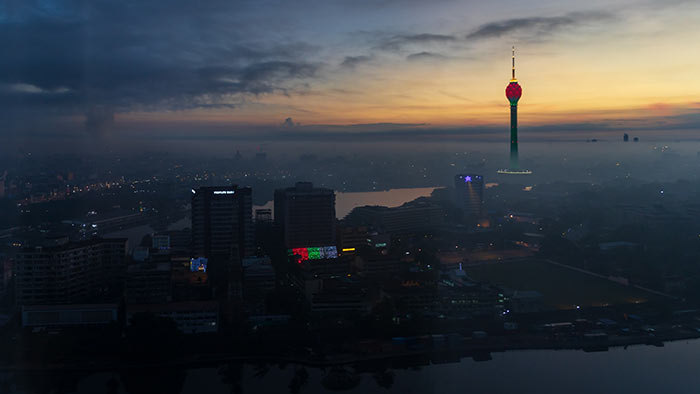Sri Lanka Slashed by Fitch as Sovereign Default ‘Has Begun’

Photo credits: unsplash
Sri Lanka was downgraded deeper into junk by Fitch Ratings, which said the nation’s decision to suspend payments on its foreign debt has kicked off a sovereign default process.
Fitch Ratings downgraded the nation’s long-term foreign currency to C, one step above default. Earlier, S&P also cut the country’s score to CC, the third-lowest level. The decisions come amid widespread social and political unrest, which led the government on Tuesday to announce it will no longer service its external debts to conserve foreign currency for crucial imports, such as food and fuel.
“There are limited upside scenarios to the ratings currently,” S&P analysts Andrew Wood and Rain Yin wrote in a statement Wednesday. The company warned that it could downgrade Sri Lanka into selective default upon “confirmation that the government has missed a coupon or principal payment on commercial foreign currency debt.”
S&P said Sri Lanka’s next interest payments are due on April 18 and the failure to cover them will likely result in default, as would an outright debt restructuring. Fitch said a sovereign default process has begun and will cut the country to RD once a payment is missed and the grace period has expired.
While Sri Lanka’s authorities said they want to engage in expedited talks with the International Monetary Fund, S&P said the negotiations appear to be in early stages. The political uncertainty may also complicate efforts to reach an IMF deal and a debt-restructuring plan, the analysts wrote.
“Sri Lanka’s debt restructuring process is likely to be complicated and may take months to complete,” Wood and Yin wrote.
The country is rated Caa2 by Moody’s Investors Service, near the bottom of the scale. S&P has a negative outlook on the nation’s credit rating, which it said reflects high risks to repayment in light of the nation’s economic, fiscal and external pressures.
Questions Swirl
Sri Lanka has been rattled by power cuts, food shortages, and a currency in free fall as protests erupt and cabinet members resign. There have been mounting calls for President Gotabaya Rajapaksa and his brother, Prime Minister Mahinda Rajapaksa, to resign, especially as inflation sends food and fuel costs higher.
The Tuesday announcement was deemed by the finance ministry to be a “last resort” as the country tries to stave off permanent damage to its economy. The decision to stop paying debts is meant to help the country preserve its dwindling dollar stockpile for essential imports.
Notes maturing in July extended their losses on Wednesday to a fresh all-time low of about 45 cents on the dollar.
(Bloomberg)

Latest Headlines in Sri Lanka
- UN pledges support for Sri Lanka’s industrial and SME development March 13, 2025
- Former Boossa Prison Superintendent shot dead in Akmeemana March 13, 2025
- Police search Sagala Ratnayaka’s residence amid hunt for IGP Deshabandu Tennakoon March 13, 2025
- Another Middeniya triple murder suspect arrested at BIA while fleeing March 13, 2025
- Court of Appeal to rule on IGP Tennakoon’s arrest warrant on March 17, 2025 March 12, 2025



It is amazing why the president or the prime minister doest appoint an independent panel consisting of a judge, MPs with financial background from main parties to question the 4 officers who said to be responsible for free-floating the Rupee and find their reasons for reaching that decisions., and to report within a month or even a shorter time.
Hard working patriots in front of the president’s office may be not interested. But at least some of us wants to know their reasons behind the suicidal decision, Before we make the jump of faith and bother where we have landed.
… leap of faith, rather